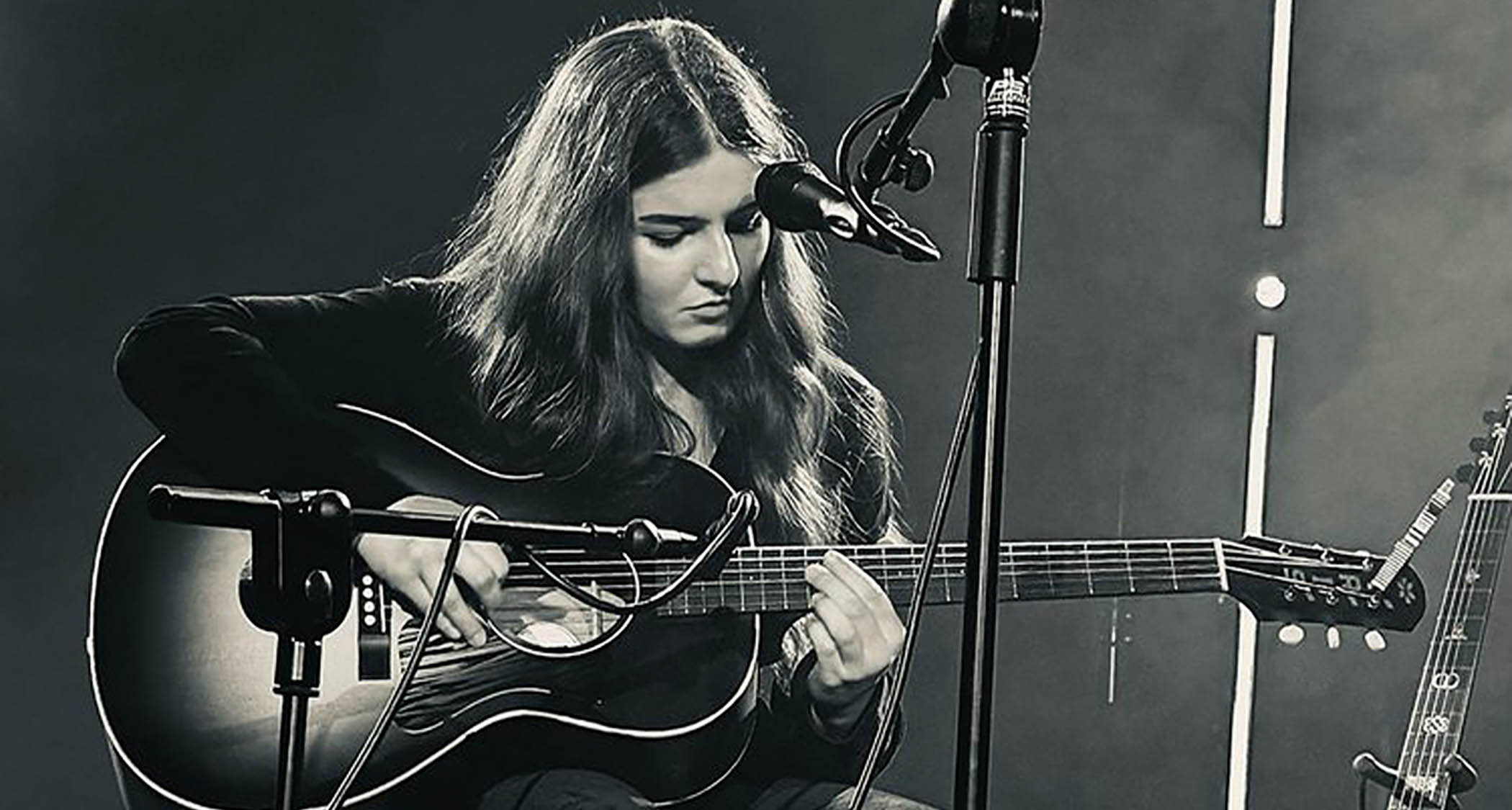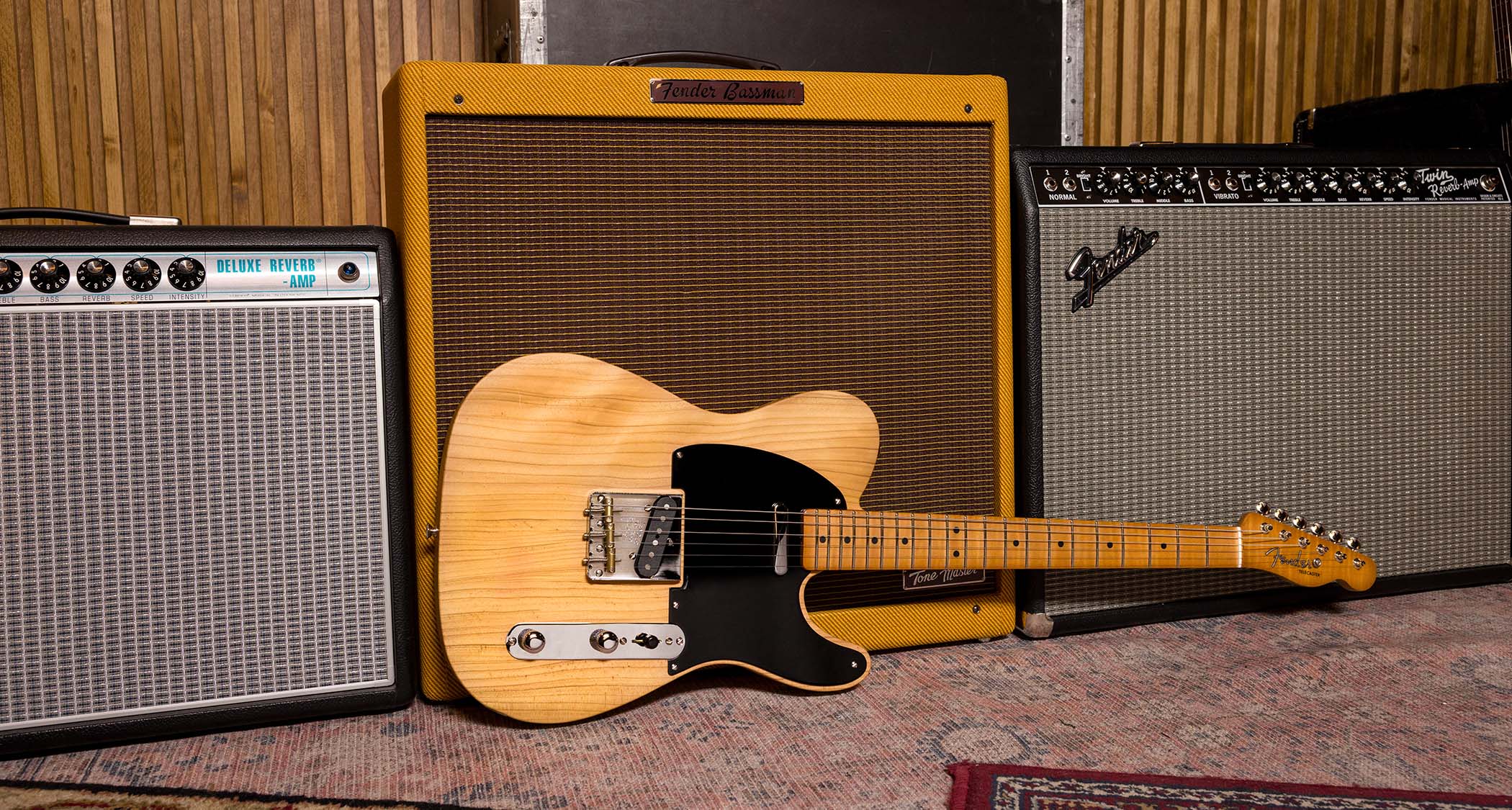“To be honest, I think most people will only be aware of the Led Zeppelin version”: Teenage blues phenom Muireann Bradley is keeping O.G. acoustic blues alive – and taking Where the Levee Breaks back to the source
Hailed as one of Ireland’s brightest emerging stars, 18-year-old Muireann Bradley is proud to champion music that’s nearly a century old

They say wisdom comes with age, but in the case of 18-year-old Irish singer and guitarist Muireann Bradley, there’s an indisputable maturity at the forefront of her recordings.
She independently released first album, I Kept These Old Blues, when she was 15. Three years later, those very same takes have been remixed and remastered as part of a new major-label deal.
It’s not hard to see why; her ability to bring blues standards into the modern age without losing the feeling or meaning behind the music sets her apart from other singer-songwriters and has led to invitations to appear on British and Irish television as well as perform in front of large crowds at major festivals.
Now poised for international success, she’s ready to bring the sound of vintage acoustic blues to audiences across the world.
You’ve included an extra song on your major-label debut — a cover of When the Levee Breaks. It’s not the version most people would expect.
“To be honest, I think most people will only be aware of the Led Zeppelin version. A lot of people out there don’t seem to be aware that the original was written by Memphis Minnie and Kansas Joe McCoy.
“I just love Memphis Minnie; she was an amazing guitarist and incredible songwriter. There’s another amazing version of the track by a Philadelphia musician called Ari Eisinger, which influenced me heavily.”
All the latest guitar news, interviews, lessons, reviews, deals and more, direct to your inbox!
There’s an unmistakable folky warmth to your guitar sound. What are we hearing on the album?
“I recorded most of it with two acoustics, and it was all done live. We set up one mic for my vocals and another for the guitar, a bit like how I perform live. They’re both Waterloo instruments that belong to my dad, made by Collings. I use them all the time. One is the WL-S Deluxe, and it’s basically a copy of a 1920s Stella.
“It’s great for me because of the small body, making it easier to play. The other one is the WL-14 X, which is their X-braced version of a 1930s-style Gibson L-00. I just mic my guitars and that’s all I need. There are no pickups or amps or anything like that.”

It sounds real and unprocessed, which is becoming increasingly rare in the digital age of Pro Tools comping and plugins.
“You can hear the imperfections in my recordings. That stuff makes it more impressive to my ears. These days you hear a lot of music that sounds perfect; as a result you don’t hear anything human because it’s been produced and tracked so well.”
Some of the tracks are in open tunings. Which ones are your favorites?
“Vestapol is an instrumental piece that I play in open D. Then there’s Police Dog Blues, which I play in open E, though it was originally recorded by Blind Blake in open D. I moved the tuning up to suit my voice because he had a much deeper voice. When the Levee Breaks is in open A, though it was originally done in open G. The Mississippi John Hurt song Frankie is also in open A.”
You recently covered Don’t Think Twice, It’s Alright by Bob Dylan. What drew you to that track?
“I listen to a lot of folk music, from Bob Dylan to Nick Drake and people like that. I’ve always loved that song and I’d say the guitar part is my favorite thing about it. I decided to learn it and ended up playing it on stage. People seemed to like the way I performed it, so we ended up recording it for [YouTube channel] Mahogany Sessions.
“I’m going to write original music for my next album. The debut was all covers, but now I want to show people what I’m about as a songwriter. There will still be some old-school tracks in the mix, too.”
Which musicians have inspired you most over the years?
“My biggest inspirations are musicians like Roy Book Binder. He’s a guitar player that used to work with Reverend Gary Davis in the 1960s. Gary actually taught him; Roy was one of his many students.
“Ari Eisinger is another big one. I don’t have many influences when it comes to singing. I try to copy the old guys and do my own version of it. It’s weird, though, because my voice is different and much higher in pitch. I tend to do things my own way. I like listening to people like Erin Harpe, though she also has a much deeper voice than me.”
You play exclusively in fingerstyle, using your thumb to strike bass notes and then your fingers for the higher notes. How did you learn to play like that?
One of the first exercises I learned was alternating my thumb on the two lower strings to create a boom-chick kind of rhythm
“My dad taught me how to play. I’m not self-taught like most people think. The first thing I learned was how to fingerpick, so my dad got me started on open tunings, showing me how to move my thumb more independently. One of the first exercises I learned was alternating my thumb on the two lower strings to create a boom-chick kind of rhythm.
“I did that for a week and then started to introduce the higher strings in between, using my index and middle finger. And those are the only fingers I use, probably because it’s just how all the old players used to do it. Reverend Gary Davis only ever used his index finger with his thumb.
“I never really learned how to properly strum with a plectrum. I can kind of do it now but it came a lot later, which is probably the opposite to most people. I’m a fingerstyle player at heart, but it took a long time to get good at it.”
- I Kept These Old Blues is out now via Decca.
- This article first appeared in Guitar World. Subscribe and save.
Amit has been writing for titles like Total Guitar, MusicRadar and Guitar World for over a decade and counts Richie Kotzen, Guthrie Govan and Jeff Beck among his primary influences as a guitar player. He's worked for magazines like Kerrang!, Metal Hammer, Classic Rock, Prog, Record Collector, Planet Rock, Rhythm and Bass Player, as well as newspapers like Metro and The Independent, interviewing everyone from Ozzy Osbourne and Lemmy to Slash and Jimmy Page, and once even traded solos with a member of Slayer on a track released internationally. As a session guitarist, he's played alongside members of Judas Priest and Uriah Heep in London ensemble Metalworks, as well as handled lead guitars for legends like Glen Matlock (Sex Pistols, The Faces) and Stu Hamm (Steve Vai, Joe Satriani, G3).
You must confirm your public display name before commenting
Please logout and then login again, you will then be prompted to enter your display name.

![Muireann Bradley - Police Dog Blues (Remastered) [Official Visualiser] - YouTube](https://img.youtube.com/vi/K4c0VH7eykI/maxresdefault.jpg)


